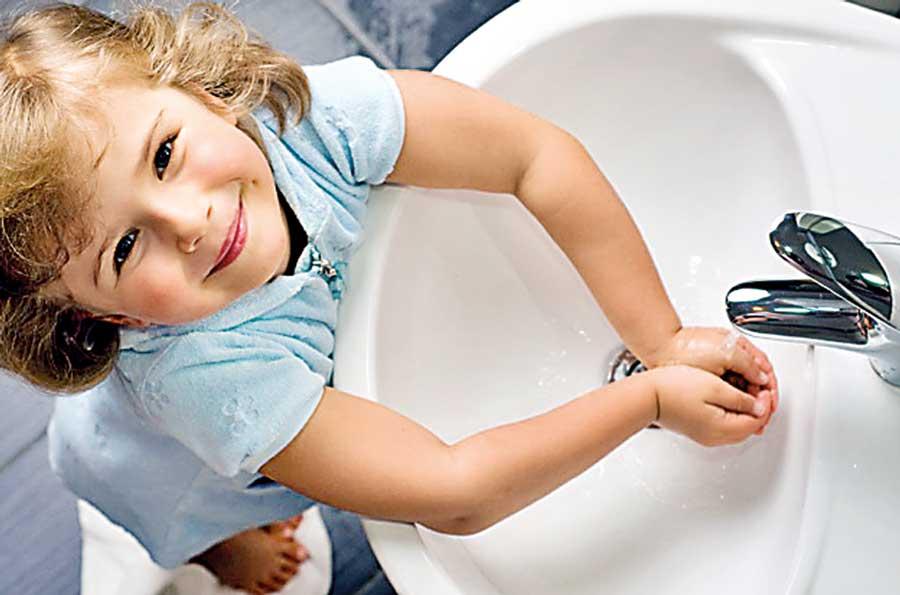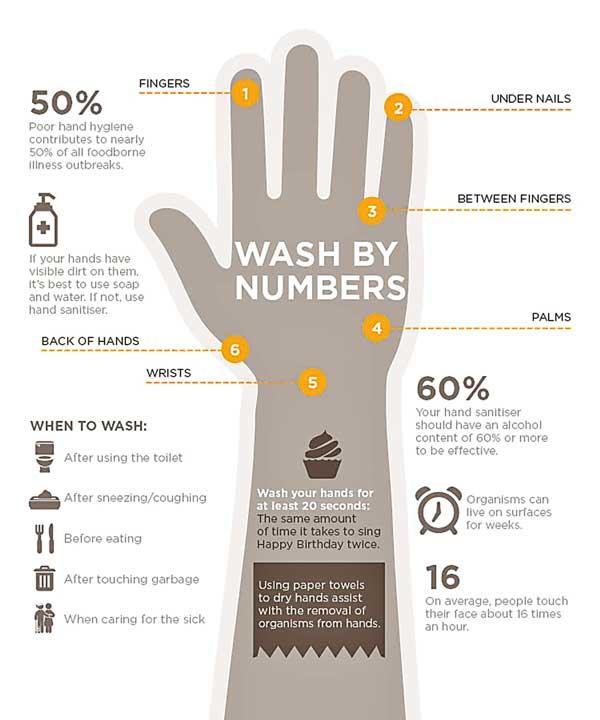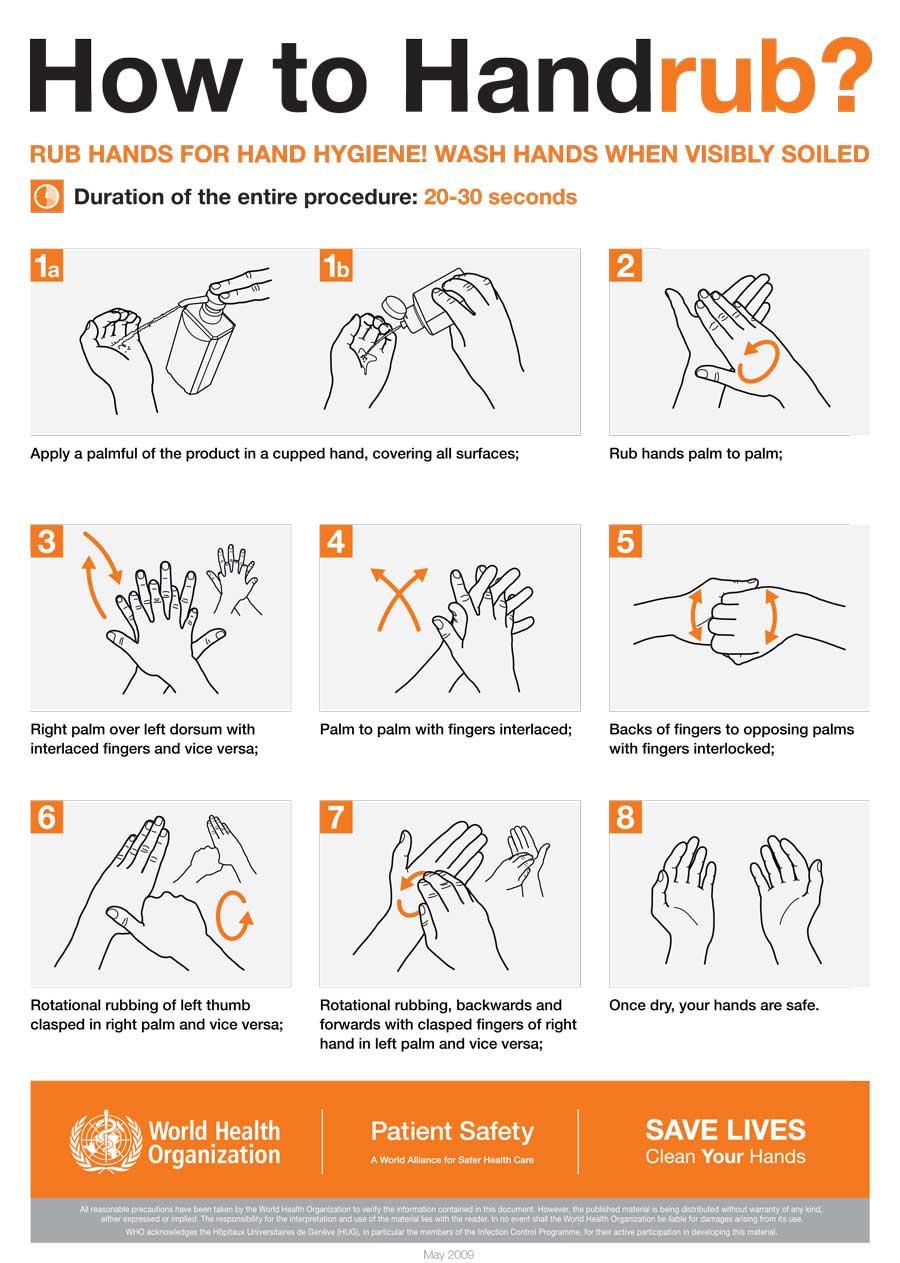Reply To:
Name - Reply Comment
Last Updated : 2024-04-23 18:56:00

 Hand Hygiene (HH) is a practice ingrained in us from our early days. By keeping pathogens and other microorganisms at bay, its enforcement will help lessen the weight of public health threats within the nation. However in the hustle and bustle of daily life HH is often neglected or forgotten. But little do we know that the consequences of unclean hands are a life and death matter.
Hand Hygiene (HH) is a practice ingrained in us from our early days. By keeping pathogens and other microorganisms at bay, its enforcement will help lessen the weight of public health threats within the nation. However in the hustle and bustle of daily life HH is often neglected or forgotten. But little do we know that the consequences of unclean hands are a life and death matter.
World Hand Hygiene day is celebrated annually on May 5 and this year’s theme is ‘Clean Care for all – it’s in your hands’.
WHO’s ‘Save Lives- Clean your Hands’ campaign attempts to demonstrate that HH offers an opportunity to reduce health care associated infections (HCAI) and ensuring patient safety.
Elaborating on the paramount importance of HH and the necessary guidelines to be followed, Dr. Asanka Tennegedara. Lecturer at the Department of Microbiology, Faculty of Medicine, University of Peradeniya, spoke to the Health Capsule.
The gravity of HH
“Hand Hygiene is the primary method used to prevent Health Care Associated Infections (HCAI). HCAI are infections that affect patients during the process of care in the hospital which were not present at the time of admission to the hospital. In addition these also affect occupational health care workers,” Dr. Tennegedara explained.
HCAI affects hundreds of millions of people worldwide and is a major global issue for patient safety. In developing countries the risk of HCAI is 2–20 times higher than in developed countries and the proportion of patients affected by HCAI can exceed 25%, according to WHO. There are various complications connected to HCAI.
“One of the most common HCAI is urinary tract infection. There are also surgical infections that can occur after surgery. Pneumonias and Blood stream infections are also possible. It may also lead to Sepsis which is a life threatening manifestation that occurs in patients due to an infection,” Dr. Tennegedara added.
Apart from severe complications the consequences of HCAI poses other burdens as well.
“Parents come to receive treatment for a particular condition. In their vulnerable, immunocompromised state, they are extremely exposed to secondary HCAI infections due to which their duration in the hospital would be prolonged. This is a burden for both the patient and the hospital as it increases the cost per patient, and it is the facility’s responsibility to treat these patients. Furthermore, the patient may be at the risk of disability or death,” Dr. Tennegedara said.
Dealing with the Pathogens
“Methicillin- resistant Staphylococcus aureus (MRSA), Multidrug resistance (MDR) Acinetobacter species and Pseudomonas species are a few examples of HCAI Pathogens which can transmit themselves through hands. These organisms are most often resistant to simple antibiotics, so we are required to go for broad-spectrum options which are very costly, not widely available and contain different toxicities. This is why it is better to prevent transmission of these pathogens and avoid using broad-spectrum antibiotics,” Dr. Tennegedara stated.
In order to practice the ideal of ‘prevention is better than cure’ and protect patients against HCAIs and the colonization with multi-resistant microorganisms, certain methodologies have been developed since the time of Hungarian physician Ignaz Philipp Semmelweis who helped pioneer antiseptic procedures.
“It is scientifically proven that hands of health care workers are the most common vehicle of transmitting the HCAI pathogens. There are guidelines on Infection control and prevention that every health care facility needs to adhere to in order to prevent such transmission. HCAI associated infections are effectively prevented by Hand Hygiene,” Dr. Tennegedara described.
There exists two methods of recommended hand hygiene.
1.Washing hands using soap and water
2.Using an alcohol-based hand rub
However for either of these methods to be effective, they must be performed in the correct way.
Moreover, there are specific instances where HH is mandatory. The WHO refers to these as ‘My 5 moments for Hand Hygiene,’ ( the WHO image to be included)
1. Before touching a patient
2. Before clean/aseptic procedures
3. After body fluid exposure risk
4. After touching a patient
5. After touching patient’s surroundings
Patients should be educated on their right to receive clean care, for in the case of a breach it is their own lives that are at risk.
Adhering to HH guidelines
In our country the HH practices are often found to be of less than the highest standard or quality. However, many improvements have been made to surpass previous shortcomings.
The Alcohol based hand rub (AHR) eliminates the inconvenience of finding a sink and washing hands with soap before and after every health care activity.
“ Over the past 15 years this alcohol based hand rub has been introduced to special care units like Intensive care, baby care etc. However, with the exception of some, owing to lack of space it is yet to be implemented in general wards. In order to overcome this shortcoming, we ensure that an AHR bottle is carried around for use even in such circumstances,” Dr. Tennegedara explained.
“The provision of AHR is done in collaboration with the Ministry of Health and the Sri Lanka College of Microbiologists. In order to monitor if hospitals are implementing HH there is a system of auditing that takes place in most facilities by an infection control team. These trained personnel make uninformed, routine visits to observe and document if HH guidelines are followed. This is done quarterly and the ‘HH compliance rate’ is calculated for each unit of the hospital, which is a quality indicator of the institution, “she continued.
In addition, education and awareness programmes are also conducted regularly to further promote the implementation of good HH practices and keep up with international standards. Future developments include the conduction of auditing procedures via mobile applications and publishing the attained results online.
Good Communal HH practices
While the main aim of HH is to prevent the transmission of HCAI, we cannot neglect that there are communal practices that ensure a healthier tomorrow for all of us as well.
Washing your hands is easy, and it’s one of the most effective ways to prevent the spread of germs. Clean hands can stop germs from spreading from one person to another and throughout an entire community—from your home and workplace to childcare facilities and hospitals. Here are some key times one must be wary of warding off germs.
(Ref: CDC)
In the instance of water and soap being unavailable, hand sanitizers may be used. However one should ascertain that it is an alcohol-based hand sanitizer that contains at least 60% alcohol. You can tell if the sanitizer contains at least 60% alcohol by looking at the product label.
World Hand Hygiene Day is not just a commemorative celebration, but a reminder that HH must be a lifestyle we adopt; a culture to build stronger communities and
healthier tomorrows.


Add comment
Comments will be edited (grammar, spelling and slang) and authorized at the discretion of Daily Mirror online. The website also has the right not to publish selected comments.
Reply To:
Name - Reply Comment
On March 26, a couple arriving from Thailand was arrested with 88 live animal
According to villagers from Naula-Moragolla out of 105 families 80 can afford
Is the situation in Sri Lanka so grim that locals harbour hope that they coul
A recent post on social media revealed that three purple-faced langurs near t